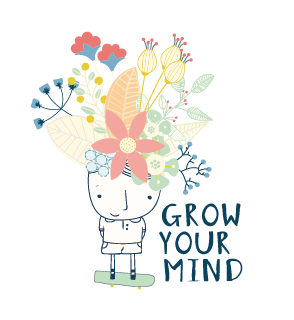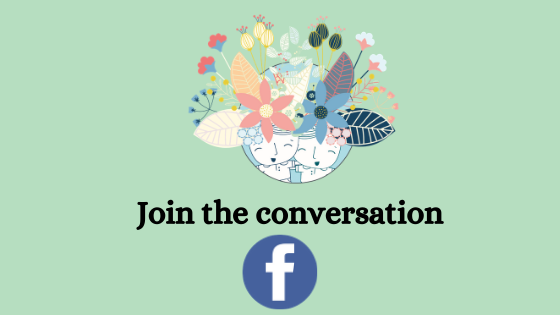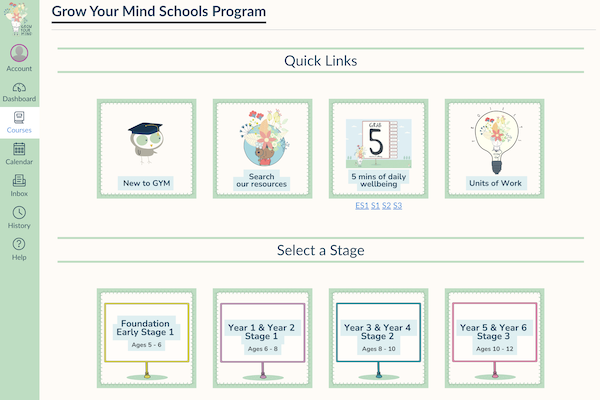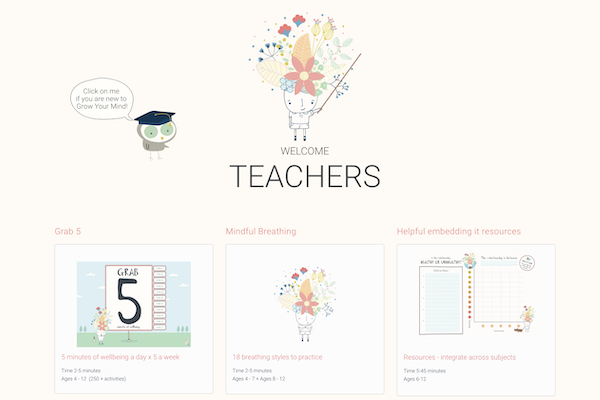by Alice Peel October 8, 2019
Fact: we all have physical health. Most Australian children tend to know how to look after it. They may choose not to, but they understand some of the basics. Brush your teeth, drink water, move your body, eat fresh produce. Do these things and, chances are, you will protect and strengthen your physical body.
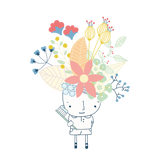
Fact: we all have mental health. Australian children tend NOT to know how to look after it. Connecting with people, showing kindness, having an authentic gratitude practice, knowing your strengths, acting with compassion, developing healthy sleep habits, practising mindfulness and learning to deal with failure are some of the many ways to protect and strengthen your mental health. Now children may be doing some or all of these practices, but do they possess a strong awareness of the connection between the two?
Final fact: If it is agreed that we all have mental health then we can agree that we can all learn ways to look after it.
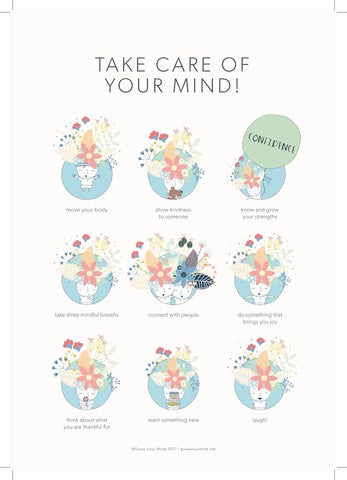
A quick recap to make sure we are all on the same page when it comes to what is meant by mental health. The World Health Organisation states that mental health is not merely the absence of disease. Rather, it is a state of wellbeing in which every individual can reach his or her own potential, can cope with the normal stresses of life, and is able to make a contribution to her or his community. Beyond Blue states that mental health is about wellness rather than illness. Hugh Van Cuylenberg from The Resilience Project talks about the fact that throughout life we are all on a continuum from chronic depression to flourishing. Hugh argues passionately for all people adopting three key practices to stay mentally healthy: gratitude, empathy and mindfulness.
At Grow Your Mind we are slightly obsessed with reclaiming the term mental health. We too believe we are all on a continuum when it comes to mental health. Our focus at Grow Your Mind is on teaching kids coping skills and the simple ways we can ensure feel well and with any luck flourish.
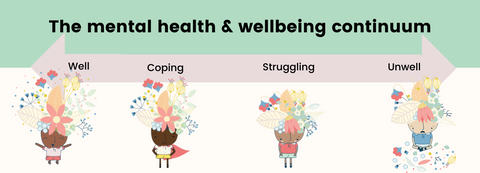
Organisations such as Kids Helpline are brilliant for the struggling and unwell part of the continuum. We need more support in schools and homes for this component too. We all have a role in mental health education.
For us at Grow Your Mind, we see our role as boosting positive mental health by providing children, educators and families with an awareness of the multiple ways we can look after our mental health.
If you have read our previous blogs you will know that for us it begins with brain awareness. Children know where their toes are, why not have a vague concept of their prefrontal cortex? From there we combine all of the most up to date research from the fields of positive psychology, neuroscience 101 and mindfulness. Two examples of this are our wellbeing resources for teachers and our home kit for families.


So here is a brief selection of MANY of our basic tips for promoting good mental health in young children (and yourself):
- Build gratitude. May we all feel we have enough. Do this by teaching your children to look for the good. Invite them to hold up their hand and name one person or thing they feel thankful for on each finger. Encourage them to reflect on things that went well in the day. See if they are open to really thanking the people around them via drawings, letters or words. Try out a family gratitude journal or jar. It doesn’t have to be every day and it should never be forced otherwise it will have the reverse effect!
- Link movement and mood with feeling better emotionally. The impact is even stronger if that movement happens outside in nature. Instead of always asking your child to breathe during a difficult moment, try asking them to take a walk with you, jump on a bike, take a dip in the sea or river.

3. Shift from what did you learn today, to what kind act did you do for someone else? Connect acting with compassion and kindness with good mental health because the fact is when we do things for others we feel better about ourselves.
4. Read together. Chapter books are not full of stories about problem-free lives, with no setbacks, sadness, failures or stuff-ups! In fact, this is what makes them interesting — how the characters adapt and overcome their challenges. Read and let these messages of resilience and life’s up and downs sink in.
5. Model and encourage good sleep habits. Screens off, lights dimmed etc. Sarah McKay a wonderful neuroscientist states: Sleep is the most important thing you can do for your brain. Drink alcohol, stop exercise, eat poorly, nothing is as detrimental for your brain and body as lack of sleep.
Honestly, this list could go on and on. But isn’t that the uplifting part of it all? There is so much we can all do — that doesn’t require much money or significant periods of time that can boost your mental health and that of your children’s.
So where to begin from here? Reclaim the term mental health, we ALL have it, therefore we can ALL look after it.
Your can also follow us on
And if you are a teacher join our Teachers facebook group. A space to ask questions, share how you are using Grow Your Mind in your classroom and school and be inspired.

